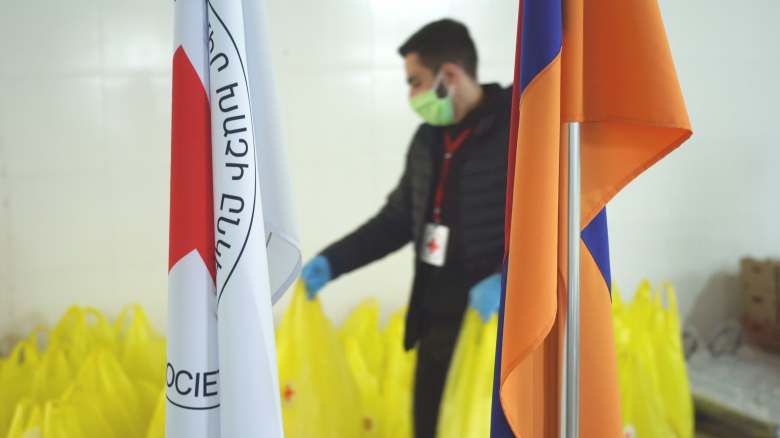
The Armenian Red Cross Society with the support of the International Federation of Red Cross and Red Crescent, the Austrian and Swiss Red Cross Societies conducted two sociological surveys throughout Armenia to identify the impact of the Covid-19 pandemic on elderly, professional caregivers, and Red Cross volunteers in the context of the provision of general care as well as to find out the level of awareness of the population and the economic and psychological needs caused by the epidemic.
According to the findings of the first survey which involved 668 elderly people from Yerevan and seven regions, the need for home care and its availability increases with age. 29.4% of respondents living in urban areas receive home care compared to only 3% in rural areas.
Access to public services and infrastructure such as community centers and leisure facilities, public transport, shops, and banks, has significantly decreased for the elderly.
According to caregivers the health, lifestyle, financial status of the elderly and the expense ability, political activity, levels of socialization with family, friends, and neighbors, level of mobility, and emotional state worsened even more because of Covid-19 and related restriction.
The survey found that humanitarian financial assistance was important for one-third of respondents and became more significant during Covid-19.
Based on the findings and conclusions of the survey short-term and long-term action proposals have been developed and will be submitted to the Government of the Republic of Armenia, national and international organizations, local self-governance bodies, NGOs, and the ARCS.
The second survey was conducted in Yerevan and in all the regions. 862 people of all age, educational and professional groups over 18 years old participated in it.
According to the findings, most people define Covid-19 as a "virus that can cause disease", with women more likely to take it as a myth than men.
According to the survey findings, people are better informed of transmission, protection, and symptoms of COVID-19 than of how to get the additional information and to seek medical assistance.
Television, government officials, and health care providers are the most trusted sources of information. Facebook ranks 4th here, although it is one of the two most preferred sources of information. Television continues to be the most reliable source of information for the upper middle age, while young people prefer the Internet.
According to the survey, only 8․3% of the respondents mentioned stigma and discrimination cases.
About 25% of the respondents mentioned that their financial situation has deteriorated. Most of them prefer to receive monthly financial support. The pandemic has had a negative impact on the psychological state of 27․2% of the respondents causing fears and depression.
One year ago on March 16, 2020, from the very first day of the state of emergency caused by the Covid-19 pandemic in the country, the Armenian Red Cross Society, as an auxiliary organization to the Government in the humanitarian field with its 11 regional, 1 territorial and 52 community branches, skillful and committed staff, 2,000 trained volunteers carried out a rapid, medium and long-term response.
The following has been carried out: